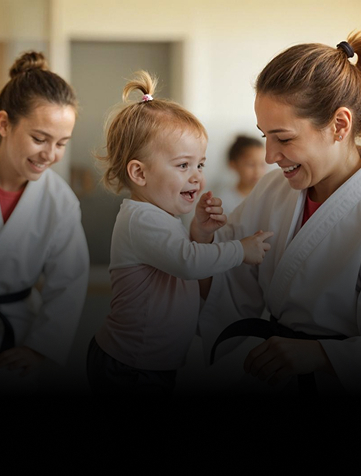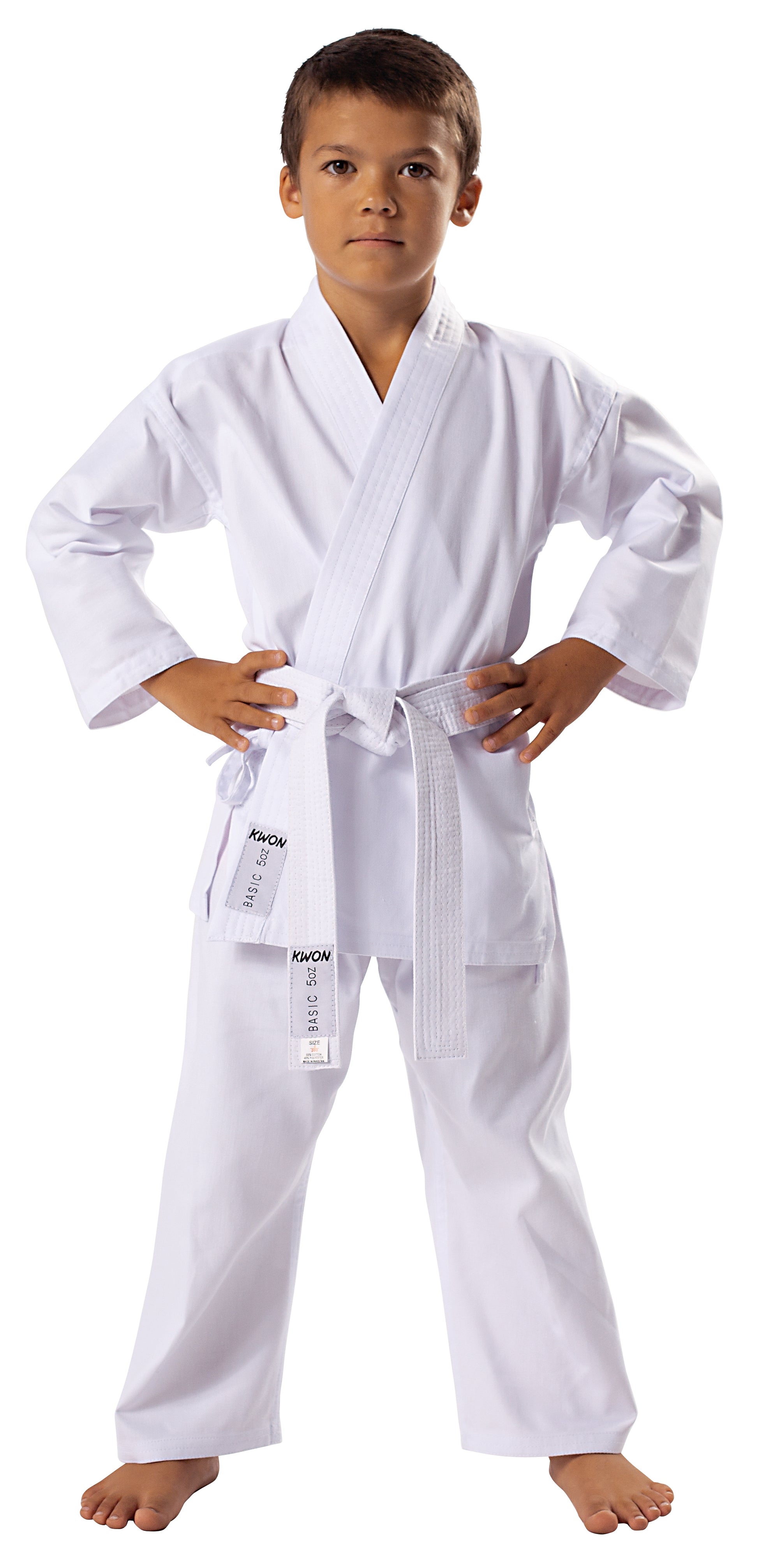How Karate for Children Can Boost Confidence and Discipline in Young Martial Artists
Karate for youngsters offers a special possibility to develop self-confidence and discipline in young martial musicians. As they find out brand-new strategies and face challenges, they not only gain skills however likewise establish a solid feeling of self-regard. This structured environment motivates them to appreciate the trip of renovation. However just how does this training convert right into their everyday lives? Discover the much deeper links that make karate greater than simply a sporting activity.
The Relevance of Self-confidence in Childhood Years Development
Confidence is a vital foundation in youth advancement. When you support your youngster's self-esteem, you equip them to face obstacles, take threats, and share themselves freely. Children with confidence are much more happy to check out social scenarios and new activities, which can lead to lasting friendships and beneficial experiences.Encouraging your youngster to tip out of their convenience zone fosters strength. They discover that failure isn't completion however rather a tipping rock to success. By celebrating their achievements, despite just how little, you aid them identify their capabilities and worth.In this trip, support and favorable reinforcement from you play an important role. Whether it's via praise or simply existing, your participation increases their self-confidence. As they grow, this self-assurance becomes a long-lasting asset, furnishing them to browse both difficulties and opportunities with a solid sense of self.
Just How Martial Arts Instructs Discipline and Emphasis
Karate assists you build discipline and emphasis via its structured training regimen. As you practice mindfulness throughout each session, you'll learn to focus much better both on and off the floor covering. Plus, establishing and accomplishing objectives in karate enhances your ability to remain attentive and dedicated.
Structured Training Routine
While you participate in karate training, you'll swiftly uncover how an organized regimen infuses discipline and emphasis in young specialists. Each course adheres to a particular format, including workouts, method method, and sparring. This consistency shows you to respect the process and dedicate to enhancement. As you find out strategies and forms, you develop a sense of obligation for your very own progress.The organized setting encourages you to set objectives, whether understanding a new belt or developing a kata. You'll locate that staying concentrated throughout classes and drills hones your concentration. The self-control you grow in martial arts expands past the dojo, favorably impacting your schoolwork and daily routines. Each session reinforces the significance of commitment, aiding you become a more disciplined individual.
Mindfulness in Technique
As you exercise martial arts, you'll discover that mindfulness ends up being an important part of your training. Each action needs your complete attention, aiding you remain concentrated on today moment. You'll learn to disregard disturbances and focus on your breathing, motions, and objectives. This increased recognition sharpens your reflexes and improves your discipline.During sparring or types, you'll find the importance of being mentally existing - Karate Salisbury MD. You'll observe exactly how this emphasis not just boosts your strategy yet additionally develops your self-confidence. By exercising mindfulness in karate, you grow persistence and durability, necessary qualities that extend beyond the dojo. By doing this, karate teaches you to harness your mind, aiding you establish a regimented approach to difficulties both on and off the mat

Setting Goal Techniques
Establishing goals in karate isn't simply about gaining belts; it's a powerful method to cultivate technique and focus. When you establish specific, achievable targets, you produce a roadmap for your progression. Instead of simply intending to improve your kicks, attempt concentrating on grasping a certain technique each month. This method maintains you determined and engaged.Breaking down larger goals into smaller sized, convenient steps helps you track your development and commemorate small victories along the road. Whether it's developing your stance or increasing your sparring endurance, every objective enhances your commitment. As you accomplish these objectives, you'll construct confidence in your skills and establish a solid sense of discipline that prolongs past the dojo right into everyday life.
Building Resilience With Martial Arts
Fighting style, specifically karate, uses children a special possibility to construct resilience in a supportive environment. In classes, they face challenges that push their limits, whether it's understanding a brand-new strategy or competing with a companion. Each obstacle, like a missed out on kick or a shed match, ends up being a possibility to learn and grow.As they exercise, children learn to welcome pain and maintain attempting, also when points obtain hard. They find that failure isn't completion; it belongs to the journey. This frame of mind assists them recover stronger, not simply in the dojo, yet in day-to-day life.With each obstacle they get rid of, your child develops confidence in their ability to take on challenges, fueling their determination. Through karate, they'll understand that strength isn't almost physical toughness; it's concerning psychological grit and determination, equipping them to face whatever life tosses their means.
The Role of Regard in Martial Arts Training
Regard is a fundamental concept in karate training, fostering a society of discipline and sociability among pupils. When you step onto the dojo flooring, you're not just learning strategies; you're also finding out to appreciate your trainers, peers, and the art itself (Karate Salisbury MD). Bowing at the start and end of course isn't just click to find out more a procedure; it represents your recommendation of others' dedication.as and initiatives you develop common respect, you'll locate it enhances your understanding experience. You'll listen a lot more diligently to your trainer and gain understandings from fellow pupils. This atmosphere urges positive criticism and support, permitting everyone to grow together.Moreover, regard cultivates self-control. Recognizing the value of tough work and humility aids you remain focused on your training. Consequently, this regard translates into your day-to-day life, improving your communications and connections outside the dojo. With martial arts, you find out that respect is necessary for personal development and neighborhood structure
Accomplishing and establishing objectives Success in Karate

Social Skills and Synergy in the Dojo
While training in the dojo, children normally create crucial social abilities and team effort abilities. As they exercise together with peers, they learn to connect properly, share area, and support each other. Each class presents opportunities for collaboration, whether it's throughout partner drills or group workouts. This team effort fosters relationships and produces a feeling of belonging, go to these guys making the dojo a nurturing environment.Kids additionally acquire valuable problem resolution skills. When they experience challenges, such as arguments during sparring, they find out to browse these situations constructively. They exercise patience and compassion, comprehending that every person has different toughness and weaknesses.Moreover, joining group tasks cultivates a feeling of accountability. You'll see your kid learning to rely upon teammates and take responsibility for their role in a team. These experiences not only boost their martial arts trip however also furnish them with social devices they'll bring right into other locations of life.

The Long-Term Advantages of Martial Arts Beyond Childhood Years
As kids mature and change into their adult years, the advantages of martial arts expand far beyond the dojo. You'll discover that the technique and emphasis learned with martial arts can convert right into your academic and professional life. Establishing and achieving goals in martial arts promotes a solid job values, which can push you to master any type of endeavor.Moreover, the self-confidence got from sparring and understanding strategies can enhance your self-confidence, aiding you tackle challenges head-on. This durability comes to be very useful as you face the uncertainties of adulthood.Additionally, the social abilities created via teamwork and camaraderie in the dojo can lead to better relationships in both personal and expert spheres. You'll learn to interact successfully, willpower disputes, and build a supportive network.Ultimately, karate shapes not simply skilled martial artists, but all-around individuals prepared to handle the world.
Often Asked Concerns
What Age Is Best to Beginning Martial Arts for Children?
You can begin martial arts as early as age four or five, however it typically depends upon your child's maturation and passion. Discovering a class that matches their age and power level makes a large distinction.
Are There Any Wellness Advantages From Practicing Martial Arts?
Yes, practicing karate offers numerous health advantages. You'll boost your flexibility, coordination, and stamina while improving cardiovascular physical fitness. Plus, it boosts focus and mental health, making it an amazing option for overall physical and psychological health and wellness.
How Commonly Should Kids Go To Martial Arts Courses?
You should urge your youngsters to attend karate courses at least a couple of times a red sox game today week. Uniformity aids them learn techniques successfully and develop abilities, making their experience much more fulfilling and satisfying in the future.
Can Karate Help With Handling Anxiousness in Children?
Yes, karate can aid manage anxiousness in youngsters. It instructs focus and self-discipline while giving a secure electrical outlet for power. You'll observe your youngster growing extra calm and confident as they practice consistently.
What Gear Is Needed for Kids Starting Karate?
